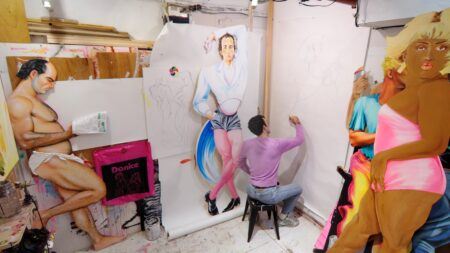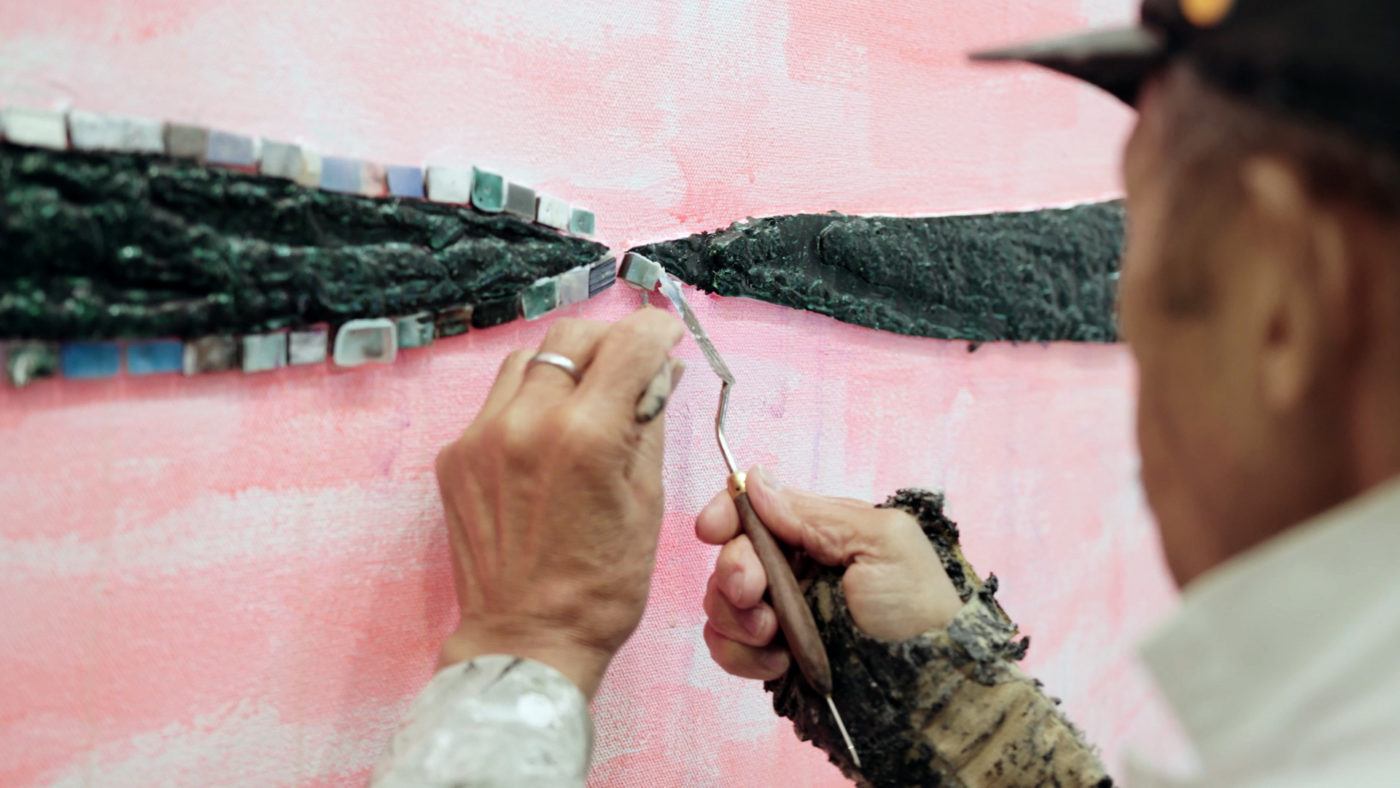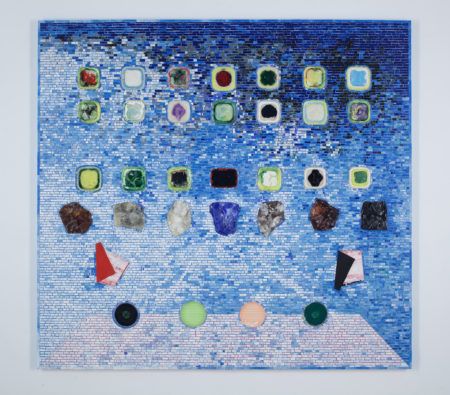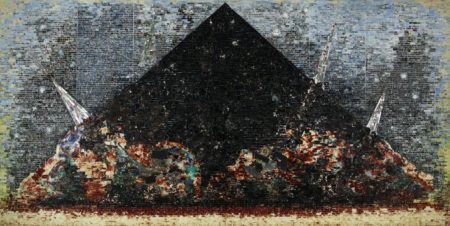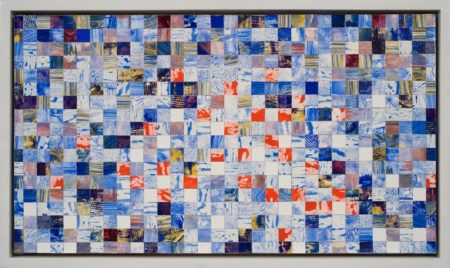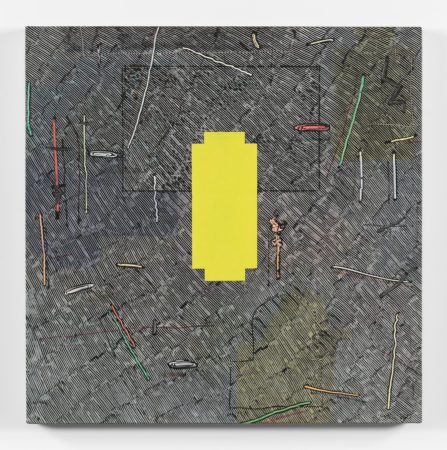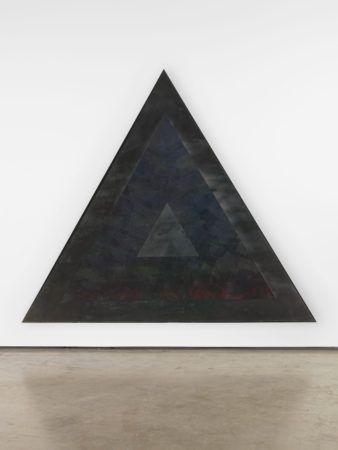Jack Whitten
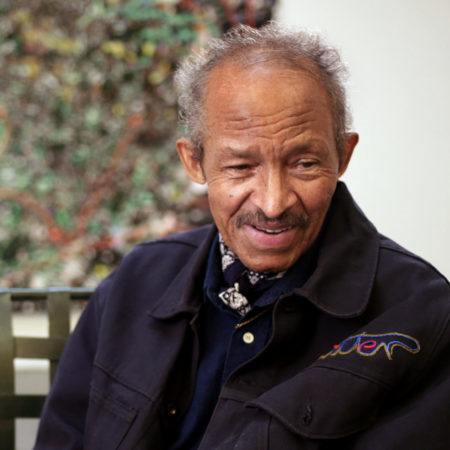
Jack Whitten was born in Bessemer, Alabama, in 1939. He attended Tuskegee University as a pre-medical student and ROTC cadet, but later transferred to Southern University in Baton Rouge, Louisiana to study art. There, he became involved in the American civil-rights movement and took part in the spring 1960 student demonstrations, staging sit-ins and a shutdown of the university. After living in New Orleans, Whitten moved to New York City, where he received his BFA in painting from the Cooper Union for the Advancement of Science and Art in 1964.
While Whitten’s early work combined figuration and abstraction, he later made a significant conceptual and stylistic shift, moving from oil paint to acrylic to focus on the process and materiality of painting. Whitten’s “developer”—a twelve-foot-long wooden rake invented by the artist to move large amounts of acrylic paint in a single gesture—resulted in his “slab” paintings, large color fields defined by a single movement. Whitten’s proclivity for invention also manifested in his signature kind of tesserae: small cubes cut from slabs of acrylic paint and adhered to the canvas, angled to catch and reflect light. Investigating the notion of paint as a collage element, Whitten used the tesserae as a vehicle to further explore his passion for science and technology; he thought of the tesserae as individual bytes of information.
For over four decades, Whitten utilized the tesserae to develop his Black Monolith series. Believing that art should reflect the period in which it’s made, Whitten created these paintings as abstracted tributes to Black artists, musicians, and public figures such as Ralph Ellison, Chuck Berry, and W.E.B. Du Bois. One of the most influential abstract and conceptual painters of his generation, Whitten lived in New York City, where he passed away in January 2018.
Videos 1
-
Jack Whitten
